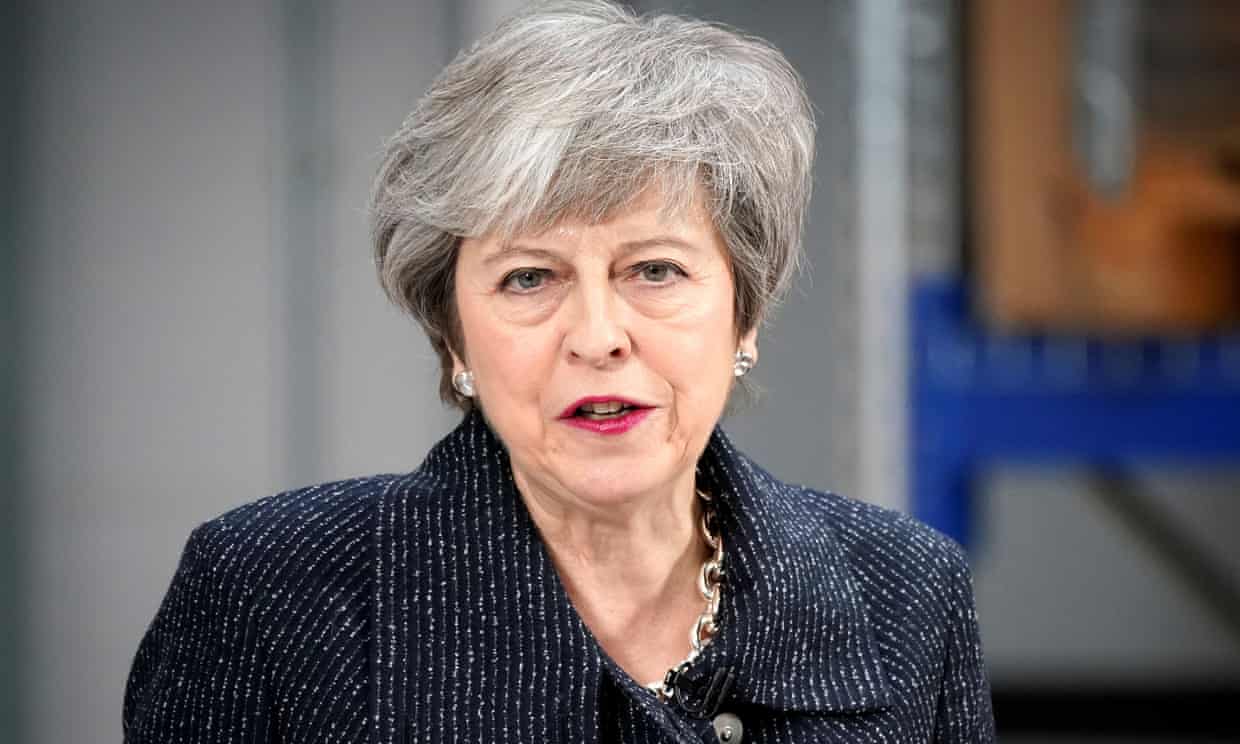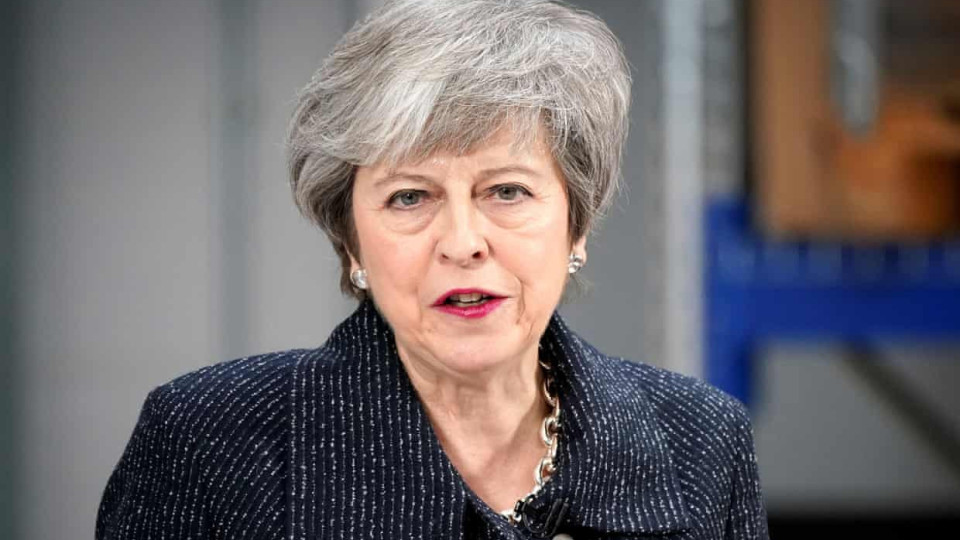

Election slogans are rarely amusing when they are served hot from the political kitchen. It is the cooling breeze of time that flavours the braggery of yesterday with a certain black comedy.
Recall how David Cameron framed the choice at the 2015 election as one between “strong and stable government” led by himself, or “a coalition of chaos” under Ed Miliband. We have no way of knowing how chaotic life might have been under a Miliband government, but it is reasonable to guess that even at his most hapless he would have struggled to match the unblemished record of unleashing havoc achieved by the Tories in the four years since.
This week we will be treated to another spasm of Brexit-induced mayhem when Theresa May has another go at shoving her unloved withdrawal deal through parliament. MPs rejected it back in January by the thumping margin of 230 votes, a defeat on a scale without precedent. The consensus is that she will again fail to secure approval on Tuesday. I can only suppose that the prime minister chose to go to Grimsby on Friday because it was an appropriately named location for a desperate speech that beseeched the DUP and the Brexit ultras on the Tory benches to rally to her deal, at the same time as pleading with the EU to give her something with which to appease them.
Geoffrey Cox, the attorney-general and her point man for the most recent round of text-wrestling with the EU’s negotiators, is rather proud of the Brexiter soubriquet “Cox’s codpiece”. All the signals from sources this weekend suggest that there is nothing in the attorney’s scrotal pouch. The only thing London and Brussels agree on is that they have not managed to agree.
Since bluff and brinkmanship are integral to what is unfolding now, we should not be too dogmatic in our predictions as to how this will turn out. Let us briefly entertain the possibility that the consensus is wrong and Mrs May somehow manages to extract a parliamentary victory from the jaws of defeat. There is a last-gasp rejigging of the Irish backstop and this proves sufficient to change enough minds in parliament and squeeze her deal through the Commons. Mrs May will then enjoy some of the best days of her premiership. She will even be hailed by some voices as a brilliant tactician who held her nerve until everyone else blinked. This adulation could last for maybe as long as 72 hours. Then everyone will remember why they found her deal so awful in the first place. A lot of her own party will remember why they want rid of her as leader. And what of those broad swathes of the electorate who are under the tragic illusion that parliamentary approval of the withdrawal agreement will mean that Brexit is sorted? These voters will then be woken up by the excruciating reality that this only concludes the first chapter – and the relatively easier one. The tougher stretch, negotiating the future relationship with the EU, has not even begun. All we have about that are some fuzzy words in the “political declaration” attached to the withdrawal agreement. For the next two years of Brexit negotiations, Britain will be “in transition” and still a member of the EU in all but name. We will have to carry on paying subscriptions to Brussels and obeying the rules which are written there, with the critical difference that Britain will no longer have any say over those budgets or rules. So even the “good” scenario for Mrs May comes with bad consequences.
As I write, the much more probable result of this week’s vote is that she goes down to another defeat and by another large margin. The deal she has spent so many months negotiating and selling will then have been rejected twice. Her authority shredded again, the prime minister will be an even more enfeebled figure and Britain will plunge deeper into uncertainty. With barely more than a fortnight remaining before Brexit day, we will still not have a clue where one of the world’s largest economies and supposedly most sophisticated democracies will land at 11pm on 29 March.
Defeat this week will present Mrs May with some extremely unappetising choices. Whichever way she turns, she will be obliged to swallow a 10-course meal of her previous rhetoric. In the event that her deal goes down a second time, MPs have been promised a vote the next day on whether they are prepared to allow Britain to leave on 29 March without an agreement. If that vote takes place, it is pretty certain that there will be a Commons majority for rejecting no-deal. MPs have already said no to no-deal in a symbolic vote at the end of January. There is only a small minority in parliament, the most fanatical wing of the Brextremists, who positively yearn to go off the cliff edge without a parachute. There will be a majority to stop it, whether or not the government’s business managers try to whip Tory MPs. I say this because at least some Conservative MPs retain a residual instinct for self-preservation. They have contemplated the consequences of a calamitous Brexit and are very scared of what it would do to the economy and their party’s reputation. They will vote to stop Britain crashing out. That will terminate Mrs May’s strategy of trying to use the spectre of a no-deal outcome to spook MPs into supporting her.
If both her deal and no-deal have been rejected, Britain is going to need more time and parliament will very likely vote to instruct Mrs May to ask the EU for a delay to the withdrawal date. This is something else that she has previously sworn that she would never countenance, but she couldn’t realistically defy a parliamentary instruction to ask for extra time. In which case, it is quite likely that she will pre-empt a parliamentary vote by unilaterally declaring that she is going to seek an extension. She might well do this in the immediate wake of the defeat of her deal, in an attempt to maintain some grip, however fragile, over the process.
An extension is not in itself an answer to the Brexit nightmare as it comes with a host of questions
An extension is not in itself any answer to the Brexit nightmare because it comes with a host of questions. How long a delay? Three months? Six months? A year? Two years? And for what purpose? The intended purpose of delay is more important than its length.
This will be a big issue for the EU, which has to agree to a postponement. An extension can only happen with the unanimous agreement of every one of its members. Each state, large or small, from Malta to Germany, Estonia to Italy, can wield a veto. Before they grant what they will see as a favour to Britain, they will want to know how it intends to spend the extra time. The EU really doesn’t want to be confronted with Britain coming back again and again to ask for further extensions, like a schoolboy who can never finish his homework.
Emmanuel Macron, who has a record of taking a hard line with the British government, has suggested that France will only support an extension if it involves “new choices”. The EU is unlikely to be impressed by a British request for an extension which isn’t accompanied by a clear plan to bring this to a resolution.
The EU would almost certainly grant an extension for the purpose of putting the question back to the British people and asking whether, after all they have learned over the past 32 months, they really want to go through with Brexit. Mrs May has always set her face against that, and with her characteristic stubbornness, but this doesn’t mean it can’t happen. As we reveal today, Steve Barclay, her Brexit secretary, has opened his door to Peter Kyle and Phil Wilson, the two Labour backbenchers who have done most to promote the idea that the Commons should pass Mrs May’s deal on the condition that it is then put before the British people for approval or rejection in a confirmatory referendum, with Remain also on the ballot paper. Since Labour’s shift of position, all the opposition parties are now signed up to another referendum, but it is moot whether there is yet a Commons majority for making it happen. It is not certain that enough Tories will support another referendum to compensate for the minority of LabourMPs who won’t.
It will not be clear until after Tuesday’s vote whether the option of another referendum will be put to MPs this week. Embracing this course would be hateful to the prime minister. It would involve eating an enormous heap of her own words, but then so do all her other options. And she must be used to the bitter taste of swallowing her old slogans by now.
The Guardian











Leave a comment